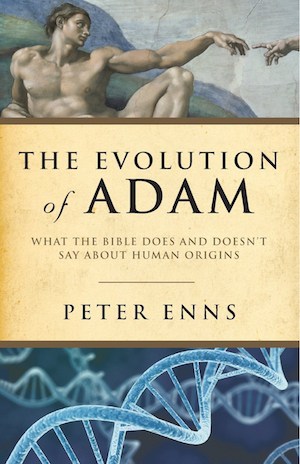 I recently sat down with myself to ask myself some questions that keep coming up
I recently sat down with myself to ask myself some questions that keep coming up
every
single
time
I post anything on evolution.
Even though I’m really busy at the moment starting a new book and am nursing a broken finger (which involves a large log and a log splitter), I was able to convince myself to take a few minutes and answer some questions. (And if you want to see more detail, you can go here.)
Pete, why do you think evolution is true?
For the same reason I believe the earth is round and billions of years old, the universe is immense and billions of years older, that there are atoms and subatomic particles, that galaxies number in the billions with billions of stars in each, that it takes light from the sun 8.3 minutes to reach us . . . . I could go on.
I believe that evolution is one of the things that science has gotten right, along with many other things we take for granted every day, because this is the resounding conclusion of the scientific community, including Christians trained in the sciences.
Without actually being trained in the sciences, it would be rather stupid and arrogant of me to feel I have something to say that would sweep all that away.
But what about the Bible? Doesn’t Genesis have something to say about all this?
Simply put, no—not in the sense that Genesis is a competing “data set” to scientific models of cosmic and human origins.
The stories in Genesis were written somewhere between 2500 and 3000 years ago, and clearly reflect cultural categories older still. I happen to think Genesis is deep theology, but its focus is on asking and answering questions of interest for ancient Israelites.
I don’t expect Genesis or any other Bronze or Iron Age text to answer the kinds of questions we can answer today through calculus, optical and radio telescopes, genomics, biological and cultural anthropology.
But aren’t you forgetting that the Bible is the very word of God? Why are you assuming that science trumps the Bible?
I’m neither forgetting nor assuming anything, nor am I unconsciously enslaved to some deeply held anti-God presupposition.
anti-God presupposition.
Rather, I have come to conclusions about these matters.
Others can disagree with these conclusions, but to shift the focus to some deeply held bias or missing of bit of proper philosophical grounding is simply a transparent debate tactic meant to deflect rather than engage.
Yet even to ask the question as you do gets to the heart of the problem, as far as I see it—it suggests a discomfort with taking seriously the implications of words like “inspiration” and “revelation.”
However we define these terms, the Bible is clearly not something dropped out of the sky. Rather it is a collection of texts written in three ancient languages and that, again, unambiguously reflects the cultural moments of the writers. Any viable notion of an inspired and revealed Bible needs to address rather than skirt this fact.
The Bible speaks the “language” of ancient people grappling with things in ancient ways, and therefore what the Bible records about creation or the dawn of humanity needs to be understood against the cultural backdrop of the biblical writers, not the past 200 years of scientific investigation.
But doesn’t Jesus trump all of this? I mean, he refers to Adam and seems to take Genesis quite literally. Don’t you think you need to obey Jesus rather than science?
Thanks for not asking at all a leading question. . . .
What I just said about the Bible holds for Jesus, too.
When we expect the words of Jesus to quickly settle the evolution issue for us, it shows that we have not grappled sufficiently with the implications of the incarnation. Actually, it betrays how uncomfortable and “irreverent” (to borrow C. S. Lewis’s description) a doctrine the incarnation can be even for Christians.
Jesus was fully human—not abstractly so, but a human of a particular sort, fully participating in the Judaism of the 1st century. The doctrine of the incarnation leaves no room whatsoever for the idea that Jesus in any way kept his distance from participating in that particular humanity. That means, among other things, that Jesus was limited in knowledge along with everyone else at the time.
As irreverent as that may seem, it is an implication of the incarnation. Jesus wasn’t an omniscient being giving the final word on the size of mustard seeds, mental illness, or cosmic and biological evolution. He was a 1st century Jew and he therefore thought like one.
Was he more than a 1st century Jew? I believe he was—and working that out is the stuff of 2000 years of Christian theology. But however “more than human” Jesus may be, and whatever we might mean by that, he was certainly not one micro-millimeter less than fully human.
But that’s the deal with the incarnation, and that’s why citing a passage or two from the Gospels doesn’t trump the profound observations of science. And to think otherwise, ironically, is not respectful of Jesus or a declaration of a “high” or “orthodox” Christology. It is actually a quasi-biblical sub-Christian Christology that betrays a deep discomfort with the theological implications of the core element of the Christian faith—the Word became flesh and dwelt among us.
So, to sum up, and since you asked, to reject evolution on Christian grounds would be to claim some superhuman insight into scientific matters that can only be described as idiosyncratic bordering on delusional, to misunderstand the nature of Scripture they are trying to protect, and to sport a heretical Christology that doesn’t take seriously Jesus’s full humanity.
Was that too harsh? You’re not posting this, are you?
[Please try to remember that comments are moderated and may take 24 hours to appear. I just started watching Twin Peaks, and, frankly, I can’t look away. And as always, feel free to speak your mind, but don’t pontificate or expect to draw me into a debate.]

